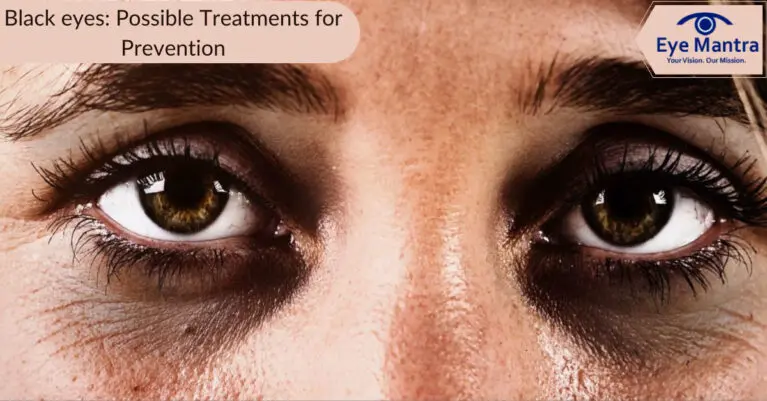
A black eye is when there’s bruising of the tissue under the skin around the eye. In most cases, the injury affects the face instead of the attention itself.
It is called a black eye due to the bluish-dark colour of the bruising within the tissue around the eye. This will happens because of the capillaries, or tiny blood vessels, have burst and leaked blood under the skin.
Another name for a black eye may be a “shiner.” The medical name may be a periorbital hematoma.
As fluids collect within the space around the eye, bruising, swelling, and puffiness result. This will make it difficult to open the attention. Vision may blur temporarily. There could also be pain around the eye, and possibly a headache.
Any bleeding inside the attention also needs medical aid, as there might be eye damage that would cause vision problems.
Contents
Share on Fighting falls, and road traffic accidents are common causes of a black eye.
A black eye can happen when something strikes an individual on the face. This might be a ball, a fist, a door, or another item.
A black eye also can occur after some sorts of dental or facelift. The bruising can last for several days.
A black eye itself isn’t dangerous, and therefore the discolouration is typically thanks to bruising around the eye. Sometimes, however, it is often a symbol of a more serious condition.
Bruising around both eyes, referred to as raccoon eyes may indicate a skull fracture or other sort of head injury. This needs urgent medical attention.
If an individual receives an injury to the world around the eye, they’re likely to note some swelling.
The swelling spreads, the colour of the skin will change. First, it’ll be red, then it’ll gradually change to navy, deep violet, and possibly black.
Pain could also be felt either constantly, or as long as someone touches the affected area.
Sometimes there’s a red patch on the attention. This is often a subconjunctival haemorrhage. It always heals after 2 to three weeks. Within a couple of days, the swelling will decrease, and therefore the discolouration becomes lighter. The dark colours gradually fade after a couple of days, from navy, violet, or black, to a yellowish-green. Vision problems, usually blurriness, may occur.
A black eye will normally heal without medical intervention, but it can sometimes be a symbol of something more serious. During this case, it’s going to need medical attention.
The biggest concern with any head injury is to make sure that there’s no skull fracture, no hematoma that’s affecting important structures like the eyes, and no bleeding or swelling within the brain. A number of symptoms may indicate that these complications are present.
If the subsequent occurs, the person will need urgent medical attention:
Applying an ice pack can help relieve pain and swelling, but don’t apply ice directly.
Ice can help to alleviate the swelling and discomfort of a black eye. The person should apply ice for around quarter-hour every hour during the primary day, and five times during the second.
The doctor will normally recommend home treatment, like ice and acetaminophen.
If they think a more serious injury, for instance, fractures to the bones of the face, they’re going to refer the person to a specialist.
Many numbers of measures that can reduce the likelihood of traumatic injury, including a black eye.
Keep the steps and floor beyond cables, clutter, and other items, especially in areas where people walk
Protective gear: people that participate in activities that increase the danger to the face, like martial arts, boxing, and get in touch with sports should use protective gear. Helmets are essential when cycling or riding a motorbike.
Goggles: These can help protect the eyes during activities like gardening, woodwork, or metalwork.
Related Articles:
Best Tips for Eye Care in Pollution
Diet & Nutrition for healthy eyes
Computer Effect on Eyes: Causes, Symptoms & Tips for Relief in Delhi